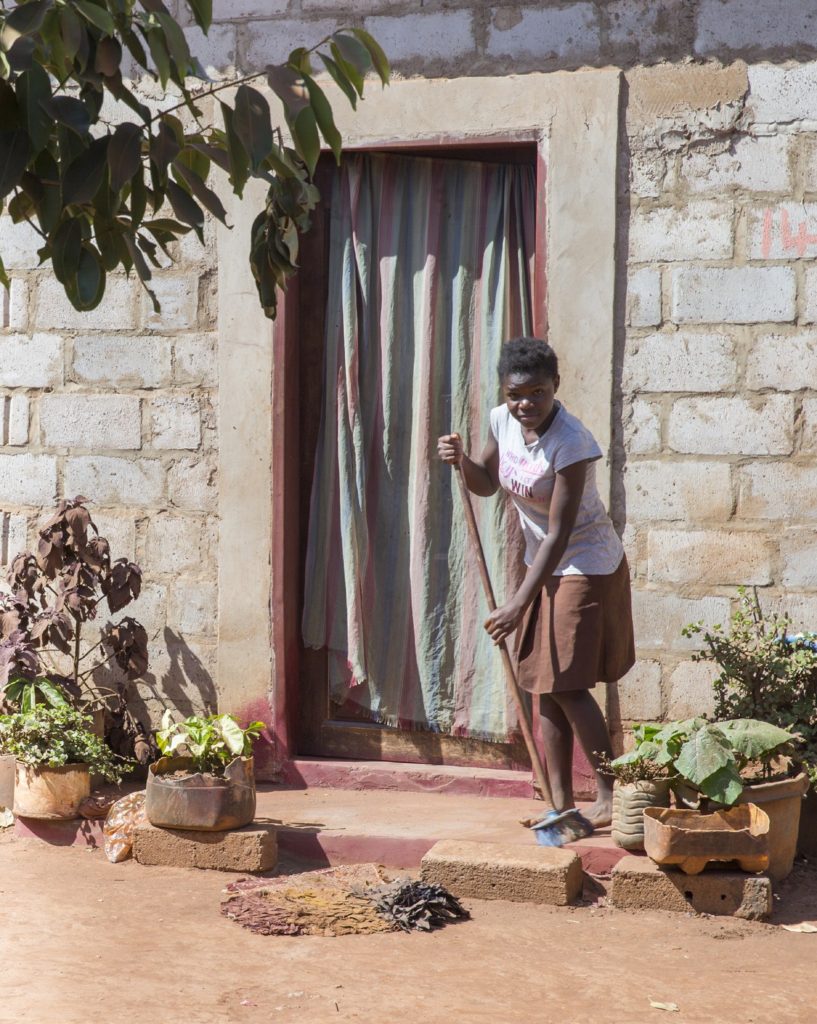Habitat considers decent housing to be a fundamental
human right and a critical springboard out of poverty
This program targets the Orphaned and Vulnerable Groups by providing adequate, affordable and decent housing. There are an estimated 1.4 million orphans under the age of 15 years in Zambia (UNICEF, Zambia Country Profile). Habitat Zambia has gradually improved its housing model from a 3 roomed house to a 4 roomed L-shaped house and now a 4 roomed rectangular shaped house. To date, more than 4,000 houses have been constructed serving 24,000 individuals with varying vulnerabilities with decent shelter. Each beneficiary family receives training in childcare, basic house maintenance, succession planning and will writing, HIV/AIDS and malaria prevention and care.
About the Program
Habitat Zambia has a robust and transparent system for partnering with families, executed in close consultation with municipalities and public officials. Where possible, future homeowners provide “sweat equity,” joining in the construction work. In 2020, Stanbic Bank and Zambia Airports Corporations Limited won the Corporate Social Responsibility and the Responsible Business Award — presented by the Corporate Social Responsibility Network of Zambia — for supporting our low-cost housing projects in partnership with Habitat.
Habitat Zambia was a partner in providing low-cost housing under the Sustainable Resettlement Program initiated by U.N. Zambia in 2014. This program was established to integrate refugees from neighboring countries, such as the Democratic Republic of Congo and Angola, into host communities in Meheba and Mayukwayukwa settlements, located in Kalumbila District in Northwestern Province, and Kaoma District in Western Province. Through our partnership with UNHCR in Zambia, Habitat successfully completed 600 houses — 300 in each resettlement area between 2014 and 2016.
Our housing interventions in the two areas have replicated lessons that have been mainstreamed through the U.N. Zambia Sustainable Resettlements Program Partnership Framework that seeks to help the government evolve from a humanitarian to a long-term development approach.
Our evidence-based advocacy efforts draw from lessons learned in our programming. We engage the local and central governments and other stakeholders through workshops and roundtables. We also participate in events such as the World Urban Forum, AfriCities, Global Land Tools Network Partners Meetings and World Bank conferences to advocate for policies that benefit those living in poverty.
Habitat Zambia actively participated in the formulation and adoption of the National Housing Policy (2020-24) and the National Lands Policy (2021-26). We worked to make
sure that slum-upgrading work reflected in these policies is based on a participatory approach, consulting slum dwellers on all efforts in their communities. We have also ensured that these policies recognize the rights of women, young people and people with disabilities for basic services.

